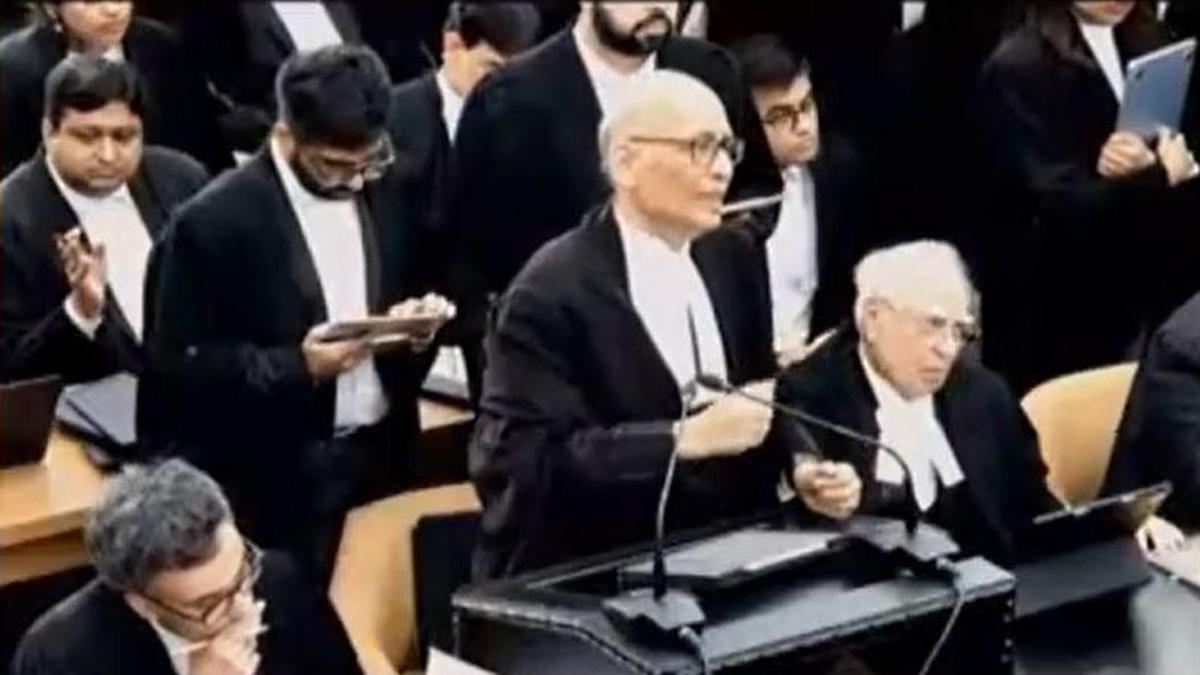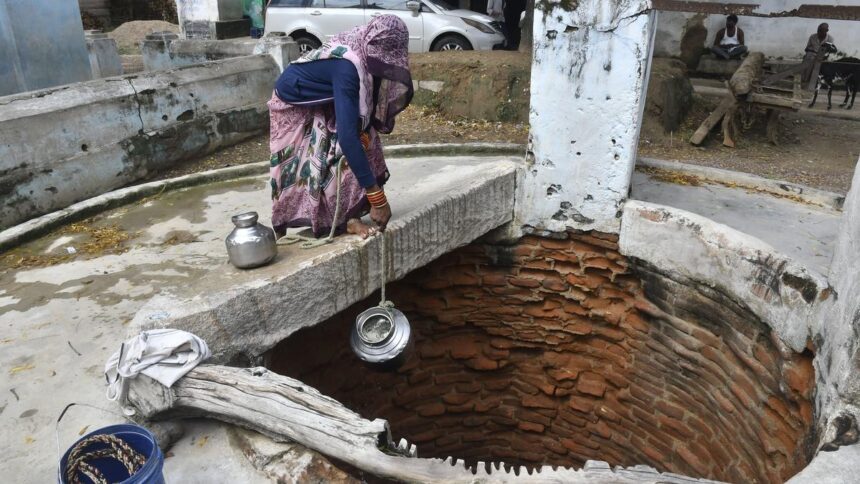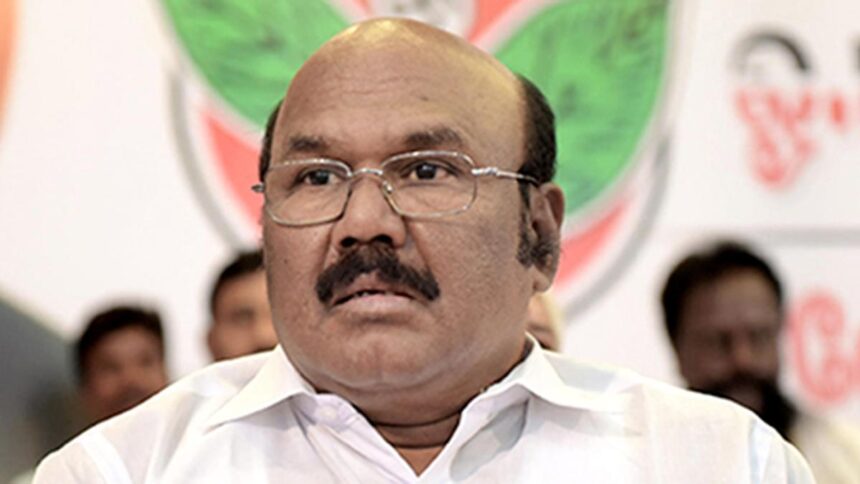
Senior advocate A.M. Singhvi argues before a Presidential Reference Bench headed by Chief Justice of India B.R. Gavai on August 28, 2025. Photo: YouTube/@SupremeCourtofIndia-1950
The State of Tamil Nadu on Thursday (August 28, 2025) countered in the Supreme Court the version of the Centre and BJP-ruled States that gubernatorial discretion is “wide”, saying a Governor cannot act as “super Chief Minister” and there cannot be “two swords in the State’s scabbard”.
Appearing before a Presidential Reference Bench headed by Chief Justice of India B.R. Gavai, senior advocate A.M. Singhvi said the Governor is at best a “lubricator”, a “facilitator”, but not a legislator.
Presidential Reference hearing, August 28, 2025 | Highlights
Tamil Nadu argued that a Chief Minister and his Cabinet must, in the best interest of democracy and the parliamentary form of governance, be responsible for the good governance of a State.
“A Governor is a part of the legislative process, but he is not part of the legislation of the State. He is not a legislator. He may have a role in the legislative process, but that too on the aid and advice of the Council of Ministers,” Mr. Singhvi submitted.
He referred to the submissions raised by the Centre and States supporting the Presidential Reference, which has raised questions about the time limits prescribed by the apex court in an April 8, 2025 judgment in the Tamil Nadu Governor case, noting that many doomsday scenarios were portrayed if the Governor’s discretion under Article 200 (assent to State Bills) was curtailed.
“Hypothetically anything may happen. The sky may fall on our heads. Constitutional interpretations cannot be done in the backdrop of doomsday predictions… A Governor cannot have a dominating role over the State executive or legislature,” Mr. Singhvi said.
Tamil Nadu asked the Bench how a Governor could be interpreted as having the last word on a bill.
“The power to assent, withhold, return bills by the Governor is only to facilitate law-making in the State… In responsible governments, there is no room for the ‘general’ discretion of the Governor… General discretion to Governor would create chaos,” Mr. Singhvi contended.
He said a Governor’s discretion to return a bill to the Assembly or refer to the President were both guided by the State Cabinet.
“There would be situations in which the government would want a rethink. There could be a change of policy — all these are possibilities for the Governor to return the bill to the Assembly. There may be cases the government itself knows the bill requires Presidential assent or the government is in doubt, then Governor may refer to the President,” Mr. Singhvi explained.
Solicitor-General Tushar Mehta, for the Centre, made additional submissions on the question whether a State could move the apex court under Article 32 complaining of violation of its fundamental rights by the Governor.
“A State is the bearer of constitutional duties, not the holder of fundamental rights. Therefore, a State cannot maintain a petition under Article 32 on the footing that its own fundamental rights have been infringed. A State cannot use Article 32 to litigate fundamental rights in a representative capacity,” Mr. Mehta argued.
He also submitted that a Governor enjoyed “complete immunity” under Article 361 for his performance in office.
“The Governor is not answerable to any court for exercise and performance of powers and duties of his office or for any act done or purporting to be done by him in the exercise of those powers and duties. However, such immunity does not take away power of the Court to examine the validity of the action including on the ground of mala fides,” the Solicitor-General submitted.
Published – August 28, 2025 09:37 pm IST





















